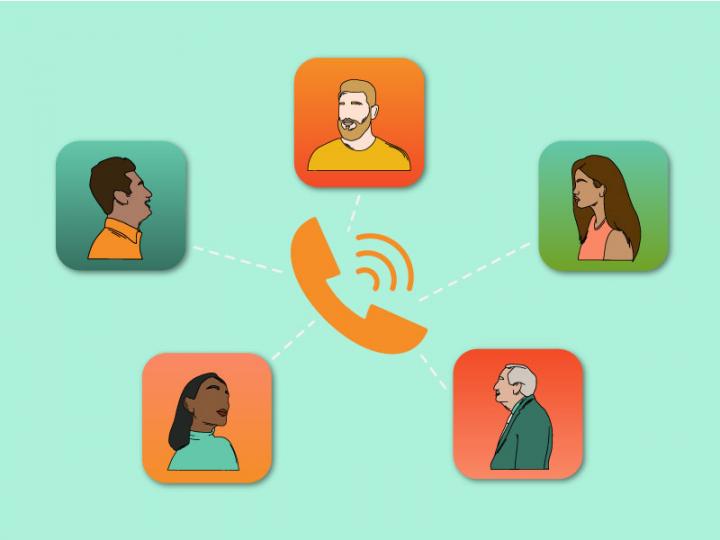Researchers improve echo cancellation technology

Credit: Illustration by @mckinsey_design.
News Release — Logan, UT — Apr. 7, 2021 — Have you ever heard your own voice talk back to you on the phone? It’s a nuisance, which is why people developed filters that adapt to the sound in a room and remove this echo (the technical term is echo cancellation).
Electrical and computer engineering faculty Todd Moon and Jacob Gunther have improved on these filters by taking on one of their weaknesses: canceling echo when people on both ends of the call are talking at the same time. Their advancement in echo cancellation technology was recognized with a patent issued on Mar. 2.
As Moon explains, these filters work pretty well when only one person is talking. But obviously in a phone conversation – and especially in a conference call setting — there’s bound to be “double-talk.”
“In the usual conference room setting, these adaptive filters can’t adapt when both people are talking at the same time. And they will actually sort of shut things down, and you get weird effects,” he said. “What I have been doing in this patent is coming up with an adaptive learning algorithm that allows the canceler to adapt more readily.”
The learning algorithm Moon developed is able to separate out various audio signals — either from the person speaking or ambient noise — faster than typical filters, thus helping prevent any of that eerie feedback. It uses a process called blind-source separation, blind because it doesn’t need to know where the acoustic signals are coming from to process them.
Moon and Gunther hope this technology will improve the performance of conference phones and make for better conference call experiences, but it also has many other applications. In the future, echo cancellation will allow people to talk to their TVs instead of using a remote control; it is a key technology in providing hands-free voice control of computers and other devices.
###
Media Contact
Dr. Todd Moon
[email protected]
Original Source
https:/




